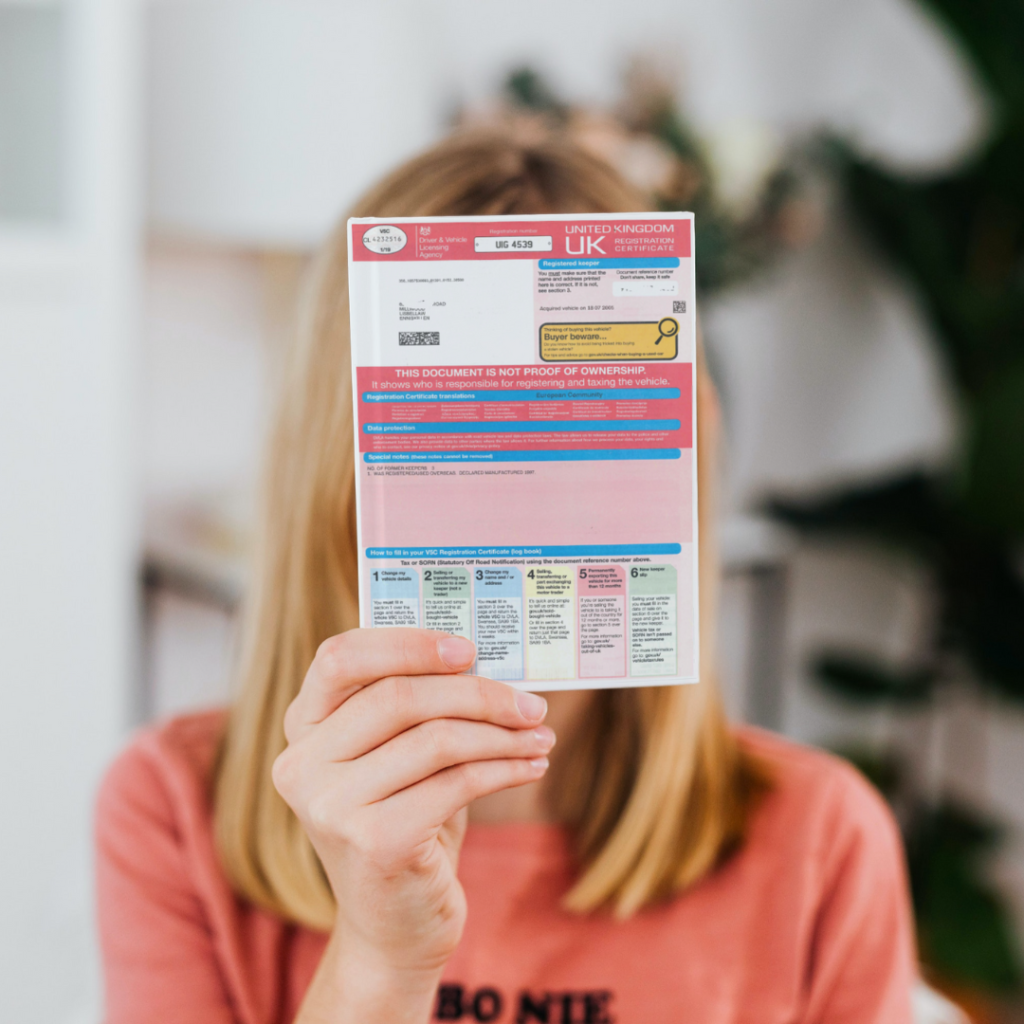Introduction
When it comes to vehicle ownership in the UK, the V5C Logbook is one of the most crucial documents you’ll ever handle. Whether you’re buying, selling, or transferring a vehicle, this official DVLA document is your key to a smooth transaction and lawful ownership.
Understanding what a V5C Logbook is, how it works, and what to do if you lose it could save you from serious complications, fines, and delays. In this comprehensive guide, we break down everything you need to know about this essential document.
What Is a V5C Logbook?
The V5C Logbook, often referred to as the vehicle registration certificate, is a document issued by the Driver and Vehicle Licensing Agency (DVLA) in the UK. It records the registered keeper of a vehicle rather than the legal owner, which is an important distinction.
This document includes:
-
Vehicle details (make, model, color, engine size, etc.)
-
The registered keeper’s details
-
Previous keeper information
-
Unique document reference number
-
Vehicle Identification Number (VIN)
The V5C Logbook is printed on red paper and should never be confused with proof of ownership. Instead, it’s a government-issued record that identifies who is responsible for registering and taxing the vehicle.
Why Is the V5C Logbook So Important?
The V5C Logbook is essential for several reasons:
Legal Requirements for Vehicle Transactions
Whenever a car is sold, gifted, scrapped, or exported, the transaction must be recorded using the V5C. Failing to notify the DVLA can result in fines of up to £1,000, plus responsibility for any road tax or penalties that the new keeper might incur.
Needed for Tax and Insurance
You can’t tax a car without the document reference number from the V5C Logbook. Likewise, some insurers require the V5C details when setting up a policy, especially if you’re a new keeper.
Assists in Recovering Stolen Vehicles
If your car is stolen, the V5C provides vital details such as VIN and previous ownership that can assist law enforcement and insurers in tracking it down.
When Do You Need to Use the V5C Logbook?
There are several key moments when you’ll need this document:
Buying or Selling a Car
When buying a used vehicle, always ask to see the V5C. Make sure the seller is listed as the registered keeper and that the details match the car. On the flip side, when selling, fill in the correct section to notify DVLA of the change.
Changing Address or Personal Details
Moved to a new house? Changed your name? These updates must be made on your V5C Logbook to keep DVLA records accurate.
Exporting or Scrapping a Vehicle
Both scenarios require sections of the V5C to be filled out and sent to the DVLA. Failing to do so can mean you’re still liable for a vehicle that’s no longer in your possession.
How to Replace a Lost or Damaged V5C Logbook
Losing your V5C Logbook can feel like a disaster, but the replacement process is straightforward.
You can apply:
-
Online through the DVLA website
-
By phone via DVLA customer service
-
By post using a V62 application form
A replacement typically costs £25, and the new document should arrive within 5 working days when ordered online.
How to Spot a Fake V5C Logbook
Unfortunately, fake V5Cs exist, especially in fraudulent vehicle sales. Here’s how to protect yourself:
-
Check the watermark and DVLA logo
-
Compare VIN and engine numbers with those on the vehicle
-
Watch for spelling errors or unofficial formatting
-
Verify document reference number via DVLA
Always be cautious when buying from private sellers and never purchase a vehicle without seeing the authentic V5C Logbook.
Common Mistakes to Avoid with the V5C Logbook
Not Updating Keeper Details
Failing to notify DVLA of a change of ownership or address can lead to unwanted fines or legal responsibility.
Sending the Whole Logbook to DVLA
Only send the relevant section, not the entire V5C, when making updates or transfers.
Assuming It’s Proof of Ownership
Remember, the V5C only identifies the registered keeper, not the legal owner. Receipts or finance agreements are needed for ownership proof.
Conclusion
The V5C Logbook might seem like just another piece of paper, but it holds legal weight and administrative importance. It ensures vehicle transactions are recorded correctly, protects you from liability, and enables access to crucial services like taxation and insurance. Keeping it updated, safe, and accurate is key to staying on the right side of the law and ensuring smooth vehicle ownership experiences.
Always verify its details when buying or selling, and never neglect to report changes to the DVLA. With just a little attention, the V5C Logbook can save you a lot of time, stress, and money.


